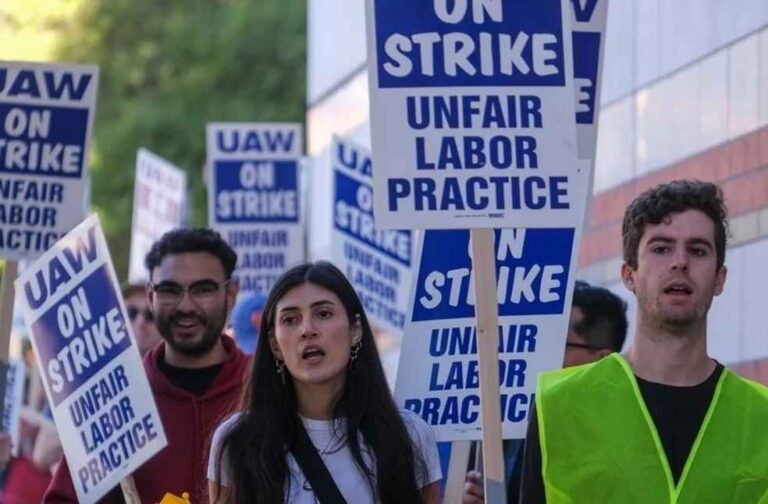The United Auto Workers (UAW) union has escalated tensions with Ford by signaling readiness for a strike at the Kentucky Truck Plant should contract negotiations remain unresolved by the forthcoming Friday deadline, February 23. Central to the discord is a contract lagging five months behind schedule, with pivotal concerns revolving around worker welfare and healthcare, notably the demand for definitive in-plant nurse staffing ratios.
Situated in Louisville, this plant stands as a cornerstone in Ford’s manufacturing empire, boasting a workforce of approximately 9,000 UAW members. This workforce is instrumental in producing esteemed models such as the Expedition and Navigator SUVs, alongside the F-Series Super Duty pickups. An impasse threatens to instigate the factory’s second labor cessation in less than twelve months, echoing a prior six-week cessation orchestrated by the UAW in 2023.

Reflecting on Ford’s rapport with the union, CEO Jim Farley, during his address at the Wolfe Research Global Auto and Auto Tech Conference, acknowledged the seismic shifts post last year’s negotiation ordeal. Farley lauded Ford’s dedication to retaining pickup assembly within the U.S., notwithstanding the operational setback precipitated by the prior shutdown.
This potential strike emerges against the backdrop of landmark labor contracts ratified in late 2023 between Detroit-Three automakers and UAW, aimed at elevating worker remuneration, reinstating cost-of-living adjustments, and augmenting benefits. These accords, while heralding progress, concurrently exacted a hefty financial toll due to production halts and the escalated costs associated with the new contracts.

Concurrently, the UAW is intensifying efforts to galvanize support at various American car manufacturing sites currently devoid of labor agreements. Notably, Volkswagen’s Tennessee facility has reportedly garnered substantial employee endorsement for unionization. As the deadline looms, the impasse at Ford’s Kentucky Truck Plant underscores a broader narrative of evolving labor dynamics within the American automotive sector.
EV WORLD | Biden Eases EV Transition Rules, Aims for Balance in Auto Industry Future





